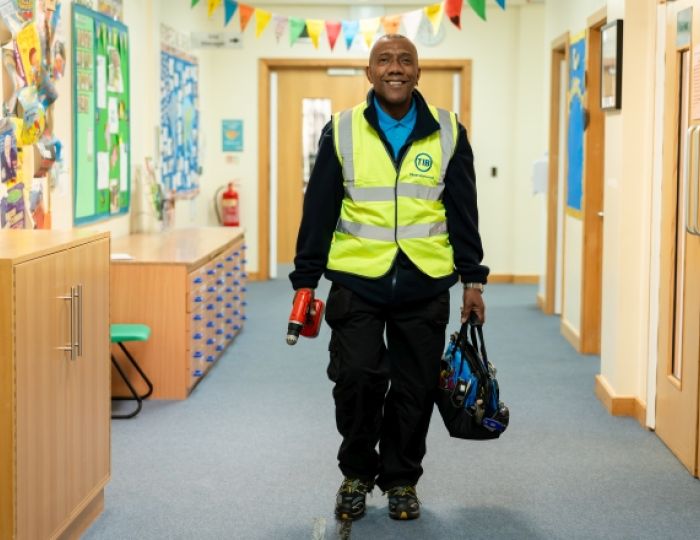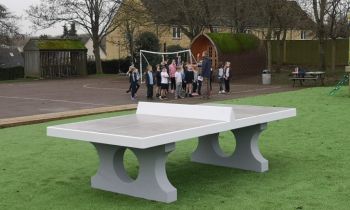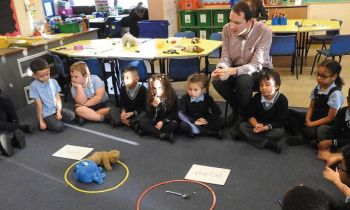In the summer of 2022, Burley Oaks Primary School retained its ‘Outstanding’ Ofsted rating with the report stating: ‘The rich and ambitious curriculum ensures that pupils’ emotional well-being is developed exceptionally well alongside their excellent academic achievement.’
This quote, above all else, was the one that most delighted our staff. Since our last inspection, we have worked incredibly hard to foster a school community that understands and supports mental health through an intergenerational approach.
Tackling the stigma of mental health
When we began our mental health and wellbeing journey, our priority was to create an environment where children and parents felt they could talk about their own mental health and wellbeing.
Crucially, we also wanted to recognise that our community stretches further than just our key stakeholders, and that we could play an important role beyond our school gates. This would not be easily achieved, but we could do more to tackle stigma and truly educate the next generation about good mental health.
Discussing our own mental health is woven into the fabric of our community and we believe our mental health offer is successful because it spans three generations.
The first generation – children
We have been proactive in investing in staff training and interventions to promote good mental health. Our wellbeing ambassadors, Leaders at Lunch and peer mentors ensure a strong sense of pupil voice as well as providing students with new relationships, opportunities to connect and support during difficult moments.
Our bespoke provision includes peer mentoring, ‘drawing and talking’ and WellMe groups that address anxiety, self-esteem and emotions. Together these have laid the foundations on which our approach to removing the stigma surrounding mental health has been built.
Our children speak confidently about what it means to have good mental health - as one Year 6 pupil put it, “Talking about mental health doesn’t mean you have a problem. It means you can deal with everyday life, make friends and learn. Oh, and it helps you be resilient. That’s a big one.”
This provision, however, does not capture the essence of our intergenerational approach. Parental engagement and community outreach were key.
The second generation – parents
There are significant generational differences in both the approach to and the stigma surrounding mental wellbeing. Although good mental health provision is essential to any school offer, this is rendered pointless if parents do not have the same values and vision to reinforce this learning at home.
To engage parents, the key to success was regular updates in multiple formats to normalise these discussions. Initially, when parents heard their children were undertaking wellbeing interventions, they assumed we were saying their child had a problem.
It was hard to overcome this instinctive defensiveness. The only way to do so was to talk about it openly, honestly and consistently. Information about our mental health curriculum, support and interventions and events designed to promote good mental wellbeing are shared via social media, our website and half-termly newsletters.
There are also specific sections on the children’s end-of-year reports on mental health and wellbeing. This wealth of rich information has helped to develop parental perception that mental health is part and parcel of their child’s life at Burley Oaks.
To supplement this, we run a Family Links programme (based on the nurturing programme), reaching over 150 families. The scheme gives them the understanding, skills and ability to lead emotionally healthy lives, build resilience, empathy and self-esteem and support positive relationships at home.
Due to the success of Family Links, our wellbeing coordinator subsequently worked closely with a community volunteer to secure a grant to roll out the programme into the wider community.
The third generation – the community
In our community, older generations would not commonly interact with primary school life. So, our aim was to break down barriers, create new relationships and support the vulnerable members of our local population.
Following Covid, our pupils were eager to tackle loneliness and understood that making new connections and developing relationships, as well as being generous to others (in this instance with your time), could support their own wellbeing and that of others.
Working closely with our local community group, Love Burley, we undertook a series of events that became the most rewarding and heart-warming elements of our intergenerational project. Over the last academic year, for example, we have hosted a conker tournament and visited drop-in sessions for board games.
Most recently, our Christmas Bonanza included 20 vulnerable local residents, who visited school for mince pies, carols and Christmas-themed crafts and games.
Watching the children interact with people who had a physical disability, learning difficulty or were living with dementia affirmed our beliefs in a project like this; we were able to see first-hand the power of someone sharing their story, increasing their self-worth and ensuring they did not feel overlooked or forgotten.
Participants reported unlocking skills and talents they don’t use anymore and one resident, who suffers with constant pain, forgot her discomfort for a while and remembered her days as a teacher. It was a “priceless experience”, according to her daughter.
The room was alive with laughter and joy, and afterwards the children were buzzing with excitement about new friends, skills or interesting stories they had heard. They could see the positive impact they had on our guests and how, in turn, this could positively impact on their own mental health.
Because of our intergenerational approach, the pupils understand the value of giving and connecting. Even more importantly, our wider community feels valued, respected and included by the younger generation.
In its simplest terms though, our top tip from day one, for staff and children alike, was talk, talk, talk! Talk openly, confidently and often about mental health. Share successes, learn from failures and build something with longevity to create a community where no one feels alone.
Who we are
- Burley Oaks Primary School is a two-form entry primary school in the village of Burley in Wharfedale, near Ilkley. It is an area with low socio-economic disadvantage with below national figures for Pupil Premium and SEND children.
- We benefit from close relationships with local businesses, two churches and four nurseries. These are mutually beneficial and create wide ranging opportunities to nurture interests in sport, nature, music and languages. We regularly deliver community outreach, such as singing at the local nurseries and send cards to residents of the nursing home.
- Children’s learning experiences at Burley Oaks create proud, long-lasting memories. Pupils leave equipped for their next phase of education, and have learned that high aspirations and hard work can achieve and bring great reward and satisfaction. We want children to be excited by learning, and to develop a thirst for knowledge whilst understanding that, along the way, learning can be challenging. They acquire the softer, personal skills to be happy, creative, resilient and purposeful citizens who are empowered to grasp future possibilities and are passionate to further explore subjects and interests.
Emma Learmonth is SENDCo and senior mental health lead at Burley Oaks Primary School, Bradford.




_945_573_80_int_s_c1_c_t.jpg)





